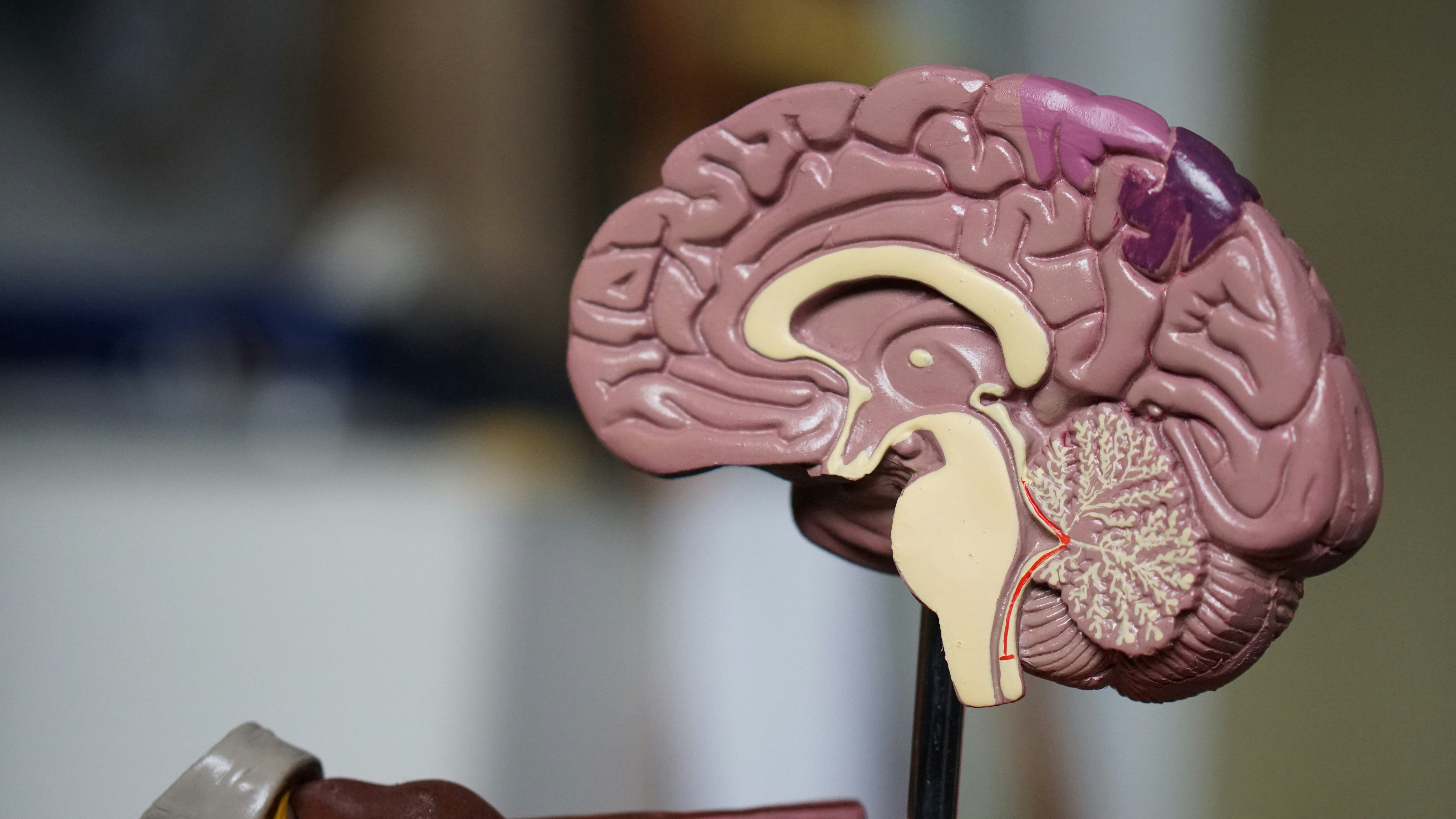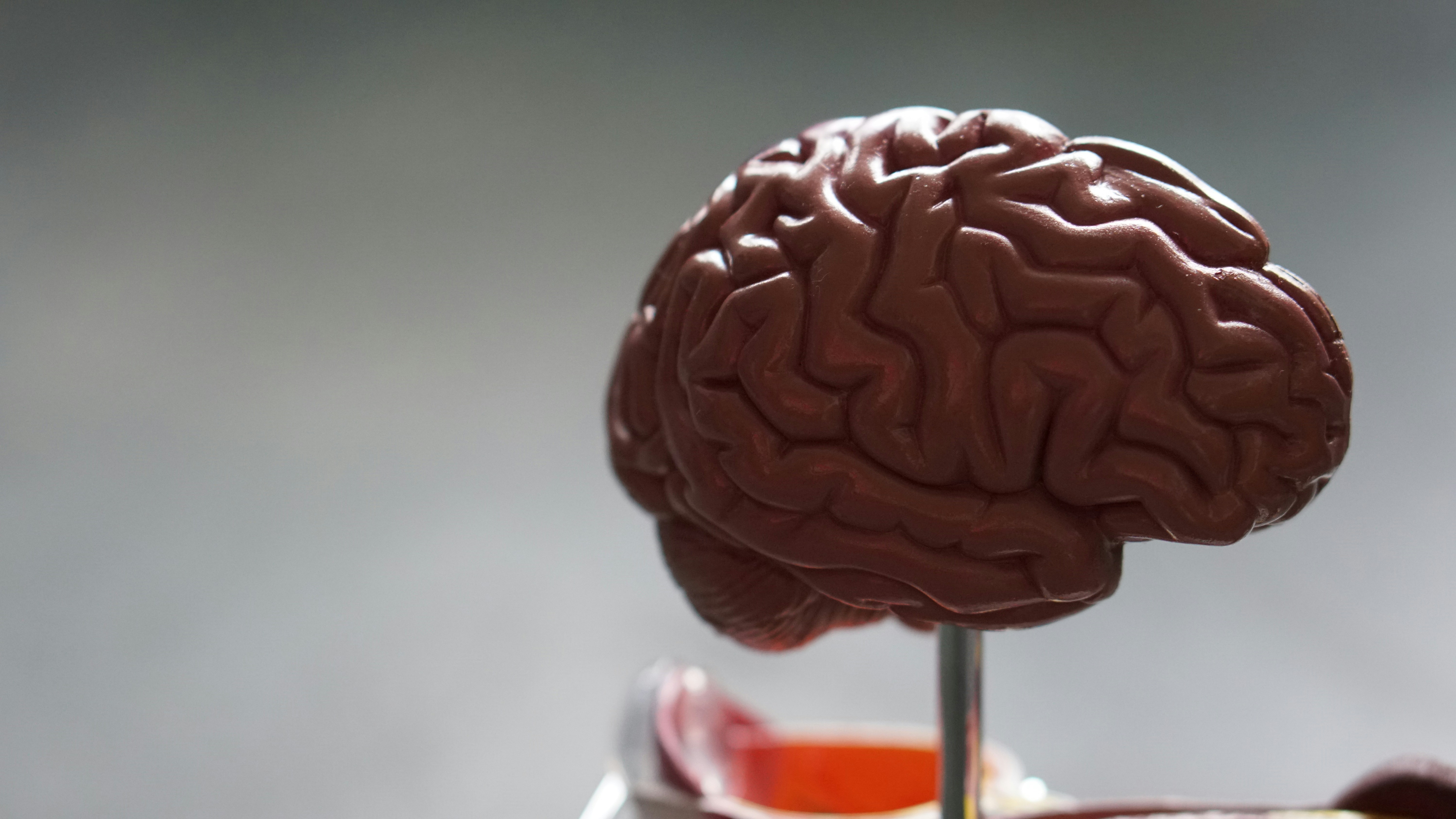Age-related memory loss is a common concern that many individuals encounter as they grow older. This article aims to provide a comprehensive understanding of this phenomenon by addressing its causes, symptoms, and potential outcomes. It is important to note that age-related memory loss is not a form of dementia or Alzheimer’s disease, but rather a normal part of the aging process. While it primarily affects older adults, it is crucial to recognize that not everyone experiences the same degree of memory decline. By gaining insights into the causes and symptoms, individuals can take proactive measures to support their cognitive health and explore strategies for prevention or treatment.
Understanding Age-Related Memory Loss
Age-related memory loss, also known as mild cognitive impairment (MCI), is a common condition that affects many older adults. It is characterized by a decline in memory and cognitive abilities that is greater than what is typically expected with normal aging. This article aims to provide a comprehensive understanding of age-related memory loss, including its definition, distinguishing it from dementia, differentiating between short-term and long-term memory loss, and how it is influenced by the aging brain.
Defining Age-Related Memory Loss
Age-related memory loss refers to the gradual decline in memory and cognitive function that occurs as individuals age. It is considered a normal part of the aging process and is usually milder than the cognitive decline seen in dementia. The most common symptom of age-related memory loss is forgetfulness, especially regarding recent events or conversations. However, individuals with age-related memory loss are still able to carry out their daily activities and maintain independence.
Distinguishing between Normal Memory Problems and Dementia
It is important to distinguish between normal memory problems associated with aging and more serious conditions like dementia. While occasional forgetfulness is common in older adults, persistent memory problems that significantly impact daily life may be indicative of dementia. Memory loss in dementia is typically more severe and progresses over time, leading to a decline in cognitive abilities and functional impairment. Consulting a healthcare professional can help determine the underlying cause and appropriate management strategies.
Differentiating Short-Term and Long-Term Memory Loss due to Aging
Age-related memory loss can affect both short-term and long-term memory. Short-term memory is the ability to remember recent events or information, while long-term memory involves the storage of past experiences and knowledge. In normal aging, short-term memory loss is more pronounced, making it challenging to remember recent conversations, appointments, or where you placed daily items. Long-term memory loss tends to be less severe and primarily affects the retrieval of information rather than its storage. Remembering details from earlier in life may become more challenging, but overall knowledge and memories are still preserved.
The Aging Brain and Memory
As individuals age, the brain undergoes a variety of changes that can contribute to age-related memory loss. Understanding the effects of aging on brain function and structure helps shed light on the mechanisms behind memory decline.
How Aging Affects the Brain’s Functions
The aging process is associated with a natural decline in cognitive abilities, including memory. There are several factors that contribute to this decline. Firstly, there is a decrease in the number of nerve cells (neurons) in the brain, particularly in areas associated with memory and learning. Additionally, there is a reduction in the production of certain neurotransmitters, chemicals that facilitate communication between neurons. The decrease in neurotransmitter levels can affect memory formation and retrieval.
The Correlation between Brain Size and Memory Loss
Studies have shown that as individuals age, there is a decrease in overall brain size, particularly in the hippocampus and prefrontal cortex, regions vital for memory and cognitive function. This decrease in brain volume can contribute to age-related memory loss. Smaller brain size is associated with reduced neural connections and a decline in the efficiency of information processing.
Changes in Hormones and Proteins that Affect Memory in Old Age
Hormonal changes also play a role in age-related memory loss. There is evidence to suggest that declining levels of certain hormones, such as estrogen and testosterone, may contribute to memory decline in older adults. In addition, the accumulation of abnormal proteins, such as beta-amyloid and tau, in the brain is believed to play a role in memory impairment, particularly in conditions like Alzheimer’s disease. These changes in hormone levels and protein accumulation can disrupt normal brain function and contribute to age-related memory loss.
Who is Most Affected by Age-Related Memory Loss
Age-related memory loss is a prevalent condition among older adults, although it affects individuals to varying degrees. Understanding the demographic and genetic factors that influence memory loss can help identify those who are most at risk.
Statistics about Memory Loss Prevalence in Older Adults
Memory loss is a common complaint among older adults, with studies suggesting that approximately 10-20% of individuals over the age of 65 experience some form of age-related memory decline. The prevalence of memory loss increases with age, with a higher incidence in individuals over 85 years old. However, it is important to note that not all individuals with memory loss will progress to develop dementia.
Risk Factors for Experiencing Memory Loss in Old Age
Several risk factors have been identified for age-related memory loss. These include advanced age, a family history of dementia or memory problems, certain medical conditions like diabetes or cardiovascular disease, and lifestyle factors such as smoking, high blood pressure, and sedentary behaviors. Moreover, individuals with a lower level of education or engagement in mentally stimulating activities may also be at a higher risk of experiencing memory decline.
The Influence of Genetics and Family History
Genetics and family history play a significant role in age-related memory loss. Studies have shown that individuals with a family history of dementia or memory problems are more likely to develop age-related memory decline themselves. This suggests a genetic predisposition to the condition. Variations in specific genes, such as the APOE gene, have been identified as risk factors for memory-related disorders, including Alzheimer’s disease. However, it is important to note that genetic predisposition does not guarantee the development of memory loss, and lifestyle factors still play a significant role.
Causes of Age-Related Memory Loss
Age-related memory loss can have various underlying causes, including biological, lifestyle, and environmental factors. Understanding these causes can help develop strategies for prevention and management.
Roles of Inflammation and Oxidative Stress
Inflammation and oxidative stress are thought to contribute to age-related memory loss. Chronic inflammation in the brain can lead to damage to neurons and their connections. Oxidative stress, caused by an imbalance between antioxidants and reactive oxygen species, can also lead to cellular damage. Both inflammation and oxidative stress can affect memory-related processes and contribute to cognitive decline.
The Relationship between Cardiovascular Health and Memory
There is a strong relationship between cardiovascular health and memory. Conditions that affect the cardiovascular system, such as high blood pressure, diabetes, and heart disease, can increase the risk of age-related memory decline. This is because these conditions affect blood flow to the brain, which is essential for delivering nutrients and oxygen necessary for proper brain function. By maintaining good cardiovascular health, it is possible to reduce the risk of memory loss.
How Lifestyle Factors Contribute to Age-Related Memory Loss
Lifestyle factors, including diet, exercise, and mental stimulation, have a significant impact on age-related memory loss. A healthy diet rich in fruits, vegetables, whole grains, and lean proteins provides essential nutrients for brain health. Regular physical exercise promotes good cardiovascular health and increases blood flow to the brain. Engaging in mentally stimulating activities, such as reading, puzzles, or social interactions, helps keep the brain active and may reduce the risk of memory decline.

Symptoms and Stages of Age-Related Memory Loss
Recognizing the symptoms and stages of age-related memory loss is crucial for early detection and management of the condition.
Typical Memory Loss Symptoms
The most common symptom of age-related memory loss is forgetfulness. This may manifest as repeatedly misplacing objects, forgetting appointments, or having difficulty recalling recent conversations or events. Mild cognitive impairment, which is often the precursor to dementia, may also involve difficulty in finding the right words, decreased attention and concentration, and decreased ability to multitask.
Understanding the Progression of Memory Loss
Age-related memory loss typically progresses slowly over time. Initially, individuals may experience occasional memory lapses that are often dismissed as normal aging. As the condition advances, memory problems become more noticeable and may start to interfere with daily activities. Transitioning from age-related memory loss to dementia is not inevitable, and some individuals may stabilize or even improve their memory with appropriate interventions.
How to Identify the Signs of Severe Cognitive Decline
Severe cognitive decline is characterized by a significant deterioration in memory and cognitive function. This stage is often associated with conditions like Alzheimer’s disease or other forms of dementia. Signs of severe cognitive decline may include difficulty recognizing familiar faces, an inability to remember recent events or conversations, confusion or disorientation, and an increased dependency on others for daily tasks. Recognizing these signs is crucial for seeking timely medical attention and support.
Diagnosis and Screening of Age-Related Memory Loss
The diagnosis and screening of age-related memory loss involve various medical evaluations and tests to assess cognitive function and identify potential underlying causes.
Medical Evaluations for Memory Loss
When a person experiences memory loss, a healthcare professional will conduct a comprehensive evaluation to determine the cause and severity of the symptoms. This may involve a detailed medical history, physical examination, and a review of medications. Tests to assess cognitive function, such as the Mini-Mental State Examination (MMSE) or Montreal Cognitive Assessment (MoCA), may also be administered to determine the extent of memory loss.
Neuropsychological Tests
Neuropsychological tests play a crucial role in diagnosing and assessing memory loss. These tests evaluate various cognitive domains, including memory, attention, language, and problem-solving. They provide a comprehensive assessment of an individual’s cognitive abilities and can help differentiate between normal age-related memory decline and more serious conditions like dementia.
Imaging Studies to Visualize Brain Changes
Imaging studies, such as magnetic resonance imaging (MRI), may be used to visualize changes in the brain associated with age-related memory loss. MRI scans can identify structural changes, such as shrinkage of specific brain regions, that may contribute to memory decline. Additionally, positron emission tomography (PET) scans can detect abnormalities in brain metabolism and the presence of amyloid plaques, a hallmark of Alzheimer’s disease.
Outcome and Prognosis of Age-Related Memory Loss
The outcome and prognosis of age-related memory loss can vary depending on the individual and the underlying causes. Understanding the potential progression and impact on daily life is essential for both patients and their families.
Predicting the Progression of Memory Loss
It is challenging to predict the progression of age-related memory loss accurately. While some individuals may stabilize or experience only mild decline, others may progress to develop more severe cognitive impairment. The presence of other risk factors, such as advanced age, genetic predisposition, or the presence of underlying medical conditions, may influence the rate of decline. Regular monitoring and follow-up with healthcare professionals can help track changes and adjust management strategies accordingly.
How Memory Loss Affects Daily Life and Independence
Age-related memory loss can have a significant impact on daily life and independence. Memory problems can make it challenging to perform routine tasks, such as managing finances, following medication schedules, or remembering important events or appointments. As memory loss progresses, individuals may require increased support or assistance from caregivers to ensure their safety and well-being.
Understanding Quality of Life with Memory Loss
While age-related memory loss can be distressing, it is important to note that individuals can still maintain a good quality of life with appropriate support and interventions. Understanding the condition, developing coping strategies, and making necessary adaptations to the environment can help individuals with memory loss continue to engage in meaningful activities and maintain social connections.
Treatment Options for Age-Related Memory Loss
There are several treatment options available to manage age-related memory loss, focusing on both symptom management and addressing underlying causes.
Medications to Manage Symptoms
Medications can be prescribed to manage symptoms associated with age-related memory loss. Cholinesterase inhibitors, such as donepezil, rivastigmine, and galantamine, are commonly used to improve memory and cognitive function in individuals with mild to moderate dementia. Memantine, an NMDA receptor antagonist, may also be prescribed to help regulate neurotransmitter activity and improve cognitive symptoms.
Lifestyle Modifications for Brain Health
Lifestyle modifications play a crucial role in managing age-related memory loss. Regular physical exercise, such as aerobic activities or strength training, has been shown to improve cognitive function and reduce the risk of memory decline. Following a healthy diet rich in fruits, vegetables, whole grains, and omega-3 fatty acids promotes brain health. Adequate sleep, stress management techniques, and avoiding smoking and excessive alcohol consumption also contribute to maintaining cognitive function.
Cognitive Therapies and Memory Aids
Cognitive therapies can be beneficial in managing age-related memory loss. These therapies aim to improve memory and overall cognitive function through various techniques, including memory training, problem-solving exercises, and mental stimulation. Additionally, memory aids such as calendars, reminder apps, or labeling systems can assist individuals in organizing their daily activities and compensating for memory deficits.

Prevention of Age-Related Memory Loss
While age-related memory loss is a natural part of the aging process, certain strategies can help prevent or delay its onset.
The Role of Physical Activity and Fitness
Regular physical activity has been shown to have a significant impact on brain health and memory function. Engaging in aerobic activities, such as walking, swimming, or dancing, promotes good cardiovascular health and increases blood flow to the brain. Aim for at least 150 minutes of moderate-intensity exercise per week to reap the cognitive benefits.
Nutritional Approaches to Preserving Memory
Maintaining a nutritious diet is vital for preserving memory and cognitive function. Foods rich in antioxidants, such as berries, leafy greens, and dark chocolate, protect against oxidative stress and inflammation. Including omega-3 fatty acids from sources like fatty fish or flaxseeds supports brain health. Avoiding excessive intake of saturated fats, refined sugars, and processed foods is also beneficial.
The Impact of Mental Stimulation and Brain Games
Engaging in mentally stimulating activities is an effective way to promote brain health and preserve memory function. Reading, puzzles, board games, learning a new language, or pursuing hobbies that require mental effort stimulate neural connections and help maintain cognitive function. Additionally, brain training games or apps specifically designed to improve memory and cognitive skills might be useful in some individuals.
Coping Strategies for Those Experiencing Memory Loss
For individuals experiencing memory loss, implementing coping strategies can help navigate daily challenges and maintain a sense of independence and well-being.
Social Support and Memory Loss
Social support plays a crucial role in managing the impact of memory loss. Family, friends, and support groups can provide emotional support, practical assistance, and help maintain social connections. Regular social interactions and engaging in activities that promote social engagement contribute to overall cognitive health.
Counseling and Psychological Therapy for Patients and Families
Counseling and psychological therapy can be beneficial for both individuals with memory loss and their families. Cognitive behavioral therapy (CBT) can help individuals develop strategies to cope with memory difficulties, manage anxiety or depression related to memory loss, and improve overall quality of life. Family counseling can also provide guidance and support for caregivers, helping them navigate the challenges of supporting a loved one with memory loss.
Adapting the Home and Environment for Safety
Making adaptations to the home and environment is crucial to ensure safety and minimize the impact of memory loss. This includes removing hazards, such as loose rugs or obstructive furniture, installing grab bars or handrails in bathrooms, using alarms or reminder systems to aid with medication or daily tasks, and organizing belongings to make them easily accessible. Implementing these adaptations can help individuals with memory loss maintain independence and reduce the risk of accidents.
In conclusion, age-related memory loss is a common condition that affects many older adults. It is characterized by a decline in memory and cognitive function that is greater than what is expected with normal aging. Understanding the causes, symptoms, and management strategies for age-related memory loss is essential for both individuals experiencing memory difficulties and their families. By implementing lifestyle modifications, seeking timely medical evaluation and treatment, and utilizing coping strategies, individuals can navigate the challenges of memory loss and maintain a good quality of life.




